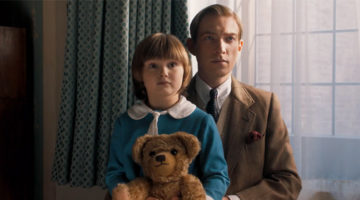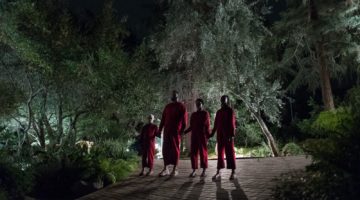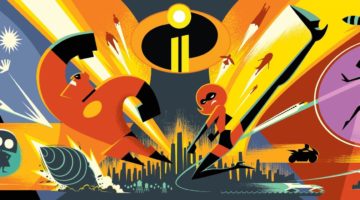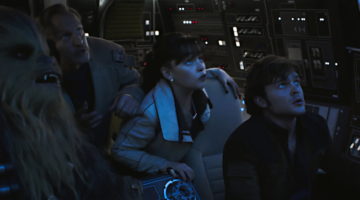Review: Words and Pictures
The initial sharp edge and quirky wit of Words and Pictures, a tepid romantic comedy that in its onset finds a cocky English teacher clash with a cold art instructor, dissipates far too fast.
Spewing barbs and inspiration in equal measure, Jack Marcus (Clive Owen) suddenly finds both his professional career and his personal livelihood on the line. He teaches English at a prep school, but while the students adore him and embrace his unconventional antics, his self-destructive nature gets him in trouble with staff and community members alike.
He may be on the way out, and one of the reasons includes a floundering school newspaper that no longer features his poetic touch. All the while, a group of new teachers are on their way in, including art instructor Dina Delsanto (Juliette Binoche), a somewhat cantankerous yet equally motivational guide whose personal issues include coping with a degenerative disease.
Soon a feud manifests itself between the two, as Marcus starts a war that pits the magic of words against the power of pictures. This conceit, along with a subplot that finds one student aggressively pursuing the other, as well as the forced romantic potential between Marcus and Delsanto, lacks conviction and begins to fall into the ordinary.
Both teachers triumph their professions in an ongoing argument, but it’s less about their craft and more about their present inability to reach past heights. In private they give in to personal demons, as the film oscillates between perfunctory melodrama that hopes to present tragic heroes, and a Battle of the Sexes game in which the two leads publicly loathe but secretly adore one another.
While Owen and Binoche both appeal to our sympathies, their characters and indeed the entire film is more interesting in the first act, before it roots itself into familiar territory. Despite a run time of nearly two hours, Words and Pictures doesn’t find its groove, as minor tangential stories – Marcus’s relationship with his son, for example – pop up quietly and soon fade away.
Even a condescending though admittedly enjoyable word game that Marcus forces on people and one that runs through almost half of the movie seems to be completely ignored later on. While the third act is rather predictable, the journey is missing anything singular to set it apart.
Everyone at the school calls the anticipated event, Words vs. Pictures, a war, but to that’s granting it too much gravity and excitement. It’s barely a set-to, and ultimately in the film, there are no winners, just those who walk away seeing decent performances and squandered potential for inspiration.
[star v=25]





